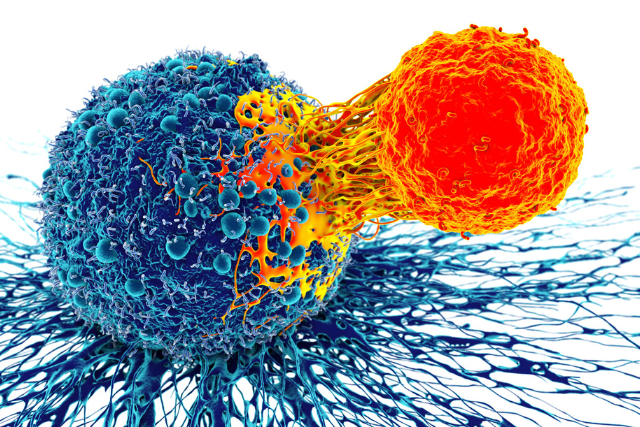Oncology, the branch of medicine dealing with the prevention, diagnosis, and treatment of cancer, is one of the most rapidly evolving fields in healthcare. Cancer is a complex and heterogeneous disease, with each patient’s cancer differing in its genetic makeup and response to treatment. Personalized medicine in oncology aims to tailor treatment strategies to the unique genetic and molecular profiles of individual patients, ensuring the most effective and least harmful approach to therapy. With the advent of artificial intelligence (AI), this concept of personalized care has become even more attainable.
AI has revolutionized oncology by enabling early and more accurate diagnoses, optimizing treatment plans based on vast amounts of clinical and molecular data, and continuously monitoring patients during and after treatment.
AI in Early Cancer Detection
Early detection of cancer is critical for improving patient outcomes. Many types of cancer, including breast, lung, and colon cancer, are often asymptomatic in their early stages, making early diagnosis difficult. AI is improving the accuracy of cancer detection by analyzing medical images, genetic data, and patient records to identify cancerous changes at a much earlier stage than traditional methods.
AI in Breast Cancer Detection: Breast cancer is one of the most common cancers worldwide, and early detection is crucial for effective treatment. Traditional methods of detecting breast cancer, such as mammography, can miss subtle signs of the disease, especially in women with dense breast tissue. AI has been shown to enhance the accuracy of mammography by identifying patterns that may be overlooked by human radiologists.
One notable AI tool is Google Health’s AI-based mammography analysis system. This system uses deep learning algorithms to analyze mammograms and detect early signs of breast cancer. A study published in Nature demonstrated that the AI system outperformed human radiologists in detecting breast cancer, reducing both false positives and false negatives. The AI tool was able to detect cancer in cases that radiologists had missed, providing an additional layer of accuracy to the screening process.
Another example is the use of AI by the company PathAI, which has developed algorithms to analyze pathology slides and detect breast cancer with high accuracy. These AI models can process large amounts of histopathological data to identify cancer cells, offering a more precise diagnosis than traditional pathology methods.
AI in Lung Cancer Detection: Lung cancer is another area where AI is making a significant impact. Lung cancer is often diagnosed at an advanced stage when treatment options are limited, but AI is helping to change that by improving early detection through imaging analysis. AI-powered tools like Google’s deep learning model for lung cancer detection can analyze CT scans to detect nodules that may indicate early-stage lung cancer. This AI model has been trained on thousands of CT scans and can identify cancerous nodules with greater accuracy than traditional radiologists .
A study published in Nature Medicine showed that Google’s AI system for lung cancer detection reduced the rate of false negatives and provided more accurate diagnoses than human radiologists. By detecting lung cancer at an earlier stage, AI enables patients to receive treatment sooner, improving survival rates and outcomes.
AI in Colorectal Cancer Detection: Colorectal cancer is another type of cancer where AI has proven valuable in early detection. AI-powered colonoscopy tools, such as GI Genius from Medtronic, use machine learning algorithms to analyze real-time video from colonoscopies and detect polyps or abnormal growths that could develop into cancer. These AI systems provide immediate feedback to gastroenterologists during the procedure, increasing the likelihood of detecting precancerous polyps.
A clinical trial published in The Lancet demonstrated that GI Genius increased the adenoma detection rate (the percentage of patients in whom adenomas, or precancerous polyps, are found) by over 30% compared to traditional colonoscopy. This improvement in detection rates could significantly reduce the incidence of colorectal cancer by enabling earlier removal of polyps before they become cancerous .
AI in Personalized Treatment Planning
One of the most promising applications of AI in oncology is its ability to develop personalized treatment plans for cancer patients. Traditionally, cancer treatment has followed a one-size-fits-all approach, but advances in genomics and AI have enabled oncologists to tailor treatments to each patient’s unique cancer profile. AI is transforming treatment planning by analyzing large datasets of patient information, including genetic mutations, tumor characteristics, and clinical outcomes, to recommend the most effective therapies for individual patients.
AI and Genomic Data Analysis: Cancer is fundamentally a genetic disease, and analyzing the genetic mutations driving tumor growth is key to developing personalized treatment plans. AI algorithms can process vast amounts of genomic data to identify the specific mutations in a patient’s tumor, which can then be targeted with precision therapies.
One notable AI tool in this area is IBM Watson for Oncology. Watson uses AI to analyze the genetic mutations in a patient’s tumor and cross-reference them with clinical trial data and the latest cancer research. Based on this analysis, Watson recommends targeted therapies that are most likely effective for the individual patient. A study published in JCO Clinical Cancer Informatics demonstrated that Watson for Oncology provided treatment recommendations that aligned with the decisions of expert oncologists in 93% of cases, offering an additional layer of precision to treatment planning .
Similarly, Tempus, a company specializing in AI-driven precision oncology, uses machine learning algorithms to analyze genomic data and recommend personalized treatment options for cancer patients. Tempus has built one of the world’s largest databases of molecular and clinical data, enabling its AI tools to make highly accurate predictions about how patients will respond to specific therapies based on their tumor’s genetic profile.
AI and Radiotherapy Planning: Radiotherapy is a common treatment for many types of cancer, but delivering the right dose of radiation to the tumor while minimizing damage to surrounding healthy tissue is a complex process. AI is helping to optimize radiotherapy planning by analyzing imaging data and patient characteristics to create personalized radiation treatment plans.
For example, Varian’s Ethos AI platform uses machine learning algorithms to analyze imaging data and automatically adjust radiotherapy plans in real time based on changes in the patient’s anatomy. This enables more precise targeting of the tumor and reduces radiation exposure to healthy tissue. A clinical trial published in Radiotherapy and Oncology demonstrated that AI-driven radiotherapy planning using Ethos resulted in more accurate radiation delivery and better outcomes for patients with various types of cancer.
AI in Drug Matching and Precision Oncology: AI is also improving personalized cancer treatment by helping oncologists match patients with the most appropriate drugs based on their tumor’s molecular profile. AI algorithms can analyze data from clinical trials, genomic studies, and drug databases to identify targeted therapies that are likely to be effective for specific mutations.
For instance, Foundation Medicine’s AI-powered platform uses machine learning to analyze genomic data from tumor biopsies and recommend targeted therapies based on the molecular alterations driving the cancer. This AI-driven approach to precision oncology helps identify novel drug combinations and clinical trials that may benefit patients with rare or hard-to-treat cancers.
A study published in The Oncologist demonstrated that patients who received AI-guided therapy recommendations based on their genomic data had significantly better outcomes compared to those who received standard treatment. AI’s ability to analyze complex genetic data and recommend targeted therapies is transforming the way oncologists approach cancer treatment, offering hope for more personalized and effective therapies.
AI in Drug Discovery and Development
The process of developing new cancer drugs is time-consuming, expensive, and fraught with challenges. AI is streamlining drug discovery and development by analyzing vast amounts of molecular and clinical data to identify potential drug candidates and predict how they will interact with cancer cells. By accelerating the drug discovery process, AI is helping to bring new treatments to market more quickly, offering patients additional options for personalized care.
AI and Immunotherapy Development: Immunotherapy, which harnesses the power of the immune system to fight cancer, has emerged as one of the most promising areas of oncology research. However, not all patients respond to immunotherapy, and identifying biomarkers that predict a patient’s response to treatment is challenging. AI is helping to accelerate the development of new immunotherapies by analyzing genetic, molecular, and clinical data to identify potential drug targets and predict which patients will respond to treatment.
For example, AI company Insilico Medicine has developed machine learning algorithms to analyze patient data and identify novel immunotherapy targets for various types of cancer. These AI models can process data from clinical trials, genomic studies, and patient records to predict which patients are most likely to benefit from specific immunotherapies. A study published in Nature Biotechnology demonstrated that Insilico’s AI platform successfully identified new drug targets for cancer immunotherapy, leading to the development of promising new treatments.
AI is also being used to predict immune-related adverse events, which are common with immunotherapy. By analyzing clinical and genetic data, AI algorithms can identify patients at high risk for severe side effects, enabling oncologists to tailor immunotherapy treatments to minimize these risks.
AI and Drug Repurposing in Oncology: Drug repurposing—finding new uses for existing drugs—is another area where AI is making an impact in oncology. AI algorithms can analyze data from drug databases, clinical trials, and molecular studies to identify existing drugs that may be effective in treating different types of cancer.
For example, BenevolentAI, a company specializing in AI-driven drug discovery, has developed machine learning algorithms that analyze data from scientific literature, clinical trials, and patient records to identify potential new uses for existing drugs. In a study published in The Lancet Oncology, BenevolentAI’s platform identified a drug originally developed for treating inflammation that showed promise in treating certain types of cancer. This approach to drug repurposing has the potential to speed up the development of new cancer treatments and reduce the cost of bringing these therapies to market.
AI in Continuous Monitoring and Post-Treatment Care
AI is not only transforming cancer diagnosis and treatment but also playing a critical role in monitoring patients during and after treatment. Continuous monitoring is essential for detecting cancer recurrence and managing side effects, particularly in the post-treatment phase when patients are at risk of relapse or long-term complications.
AI and Wearable Devices for Patient Monitoring: Wearable devices, such as smartwatches and fitness trackers, are increasingly being used to monitor cancer patients in real-time. AI algorithms integrated into these devices can analyze data on vital signs, physical activity, and sleep patterns to detect early signs of cancer recurrence or complications.
For example, Apple Watch’s AI-driven health monitoring features can track heart rate variability, physical activity levels, and other metrics that may indicate changes in a patient’s health status. In cancer patients, AI algorithms can analyze this data to detect signs of fatigue, infection, or recurrence, allowing for earlier interventions. A study published in JAMA Oncology demonstrated that wearable devices with AI-driven analysis improved the detection of cancer-related complications and reduced hospital readmissions .
AI in Post-Treatment Surveillance: AI is also being used to monitor cancer patients after they have completed treatment, helping to detect recurrence at an early stage. AI-powered platforms like COTA analyze patient records, imaging data, and genetic information to identify patterns that may indicate the cancer has returned. These AI algorithms can process vast amounts of data from multiple sources, providing oncologists with real-time insights into the patient’s risk of recurrence.
A study published in The New England Journal of Medicine found that AI-driven post-treatment surveillance resulted in earlier detection of cancer recurrence in patients with breast, lung, and colorectal cancers. By identifying recurrence early, AI enables oncologists to intervene sooner, improving survival rates and reducing the need for more aggressive treatments.
AI is revolutionizing oncology by enabling more personalized care at every stage of the cancer care continuum, from early detection to treatment planning, drug discovery, and post-treatment monitoring. AI’s ability to analyze vast amounts of data and identify patterns that human clinicians may miss is transforming the way cancer is diagnosed and treated, offering new hope for patients with hard-to-treat cancers.
Whether it’s detecting cancer at an earlier stage, developing personalized treatment plans based on genomic data, or monitoring patients for signs of recurrence, AI is playing a critical role in improving outcomes and quality of life for cancer patients. As AI continues to advance, its impact on oncology will only grow, offering new opportunities for personalized care and improved survival rates for millions of cancer patients worldwide.
Sources:
- “AI in Breast Cancer Detection: A Study of Google Health’s AI System,” Nature, 2020.
- “Deep Learning in Lung Cancer Detection,” Nature Medicine, 2019.
- “GI Genius and AI in Colorectal Cancer Detection,” The Lancet, 2020.
- “Watson for Oncology: AI and Precision Cancer Care,” JCO Clinical Cancer Informatics, 2019.
- “AI-Driven Radiotherapy Planning: A Clinical Study,” Radiotherapy and Oncology, 2021.
- “AI in Drug Discovery: Insilico Medicine’s Breakthrough,” Nature Biotechnology, 2021.
- “AI and Wearable Devices for Cancer Monitoring,” JAMA Oncology, 2022.
- “AI in Post-Treatment Cancer Surveillance,” The New England Journal of Medicine, 2020.




